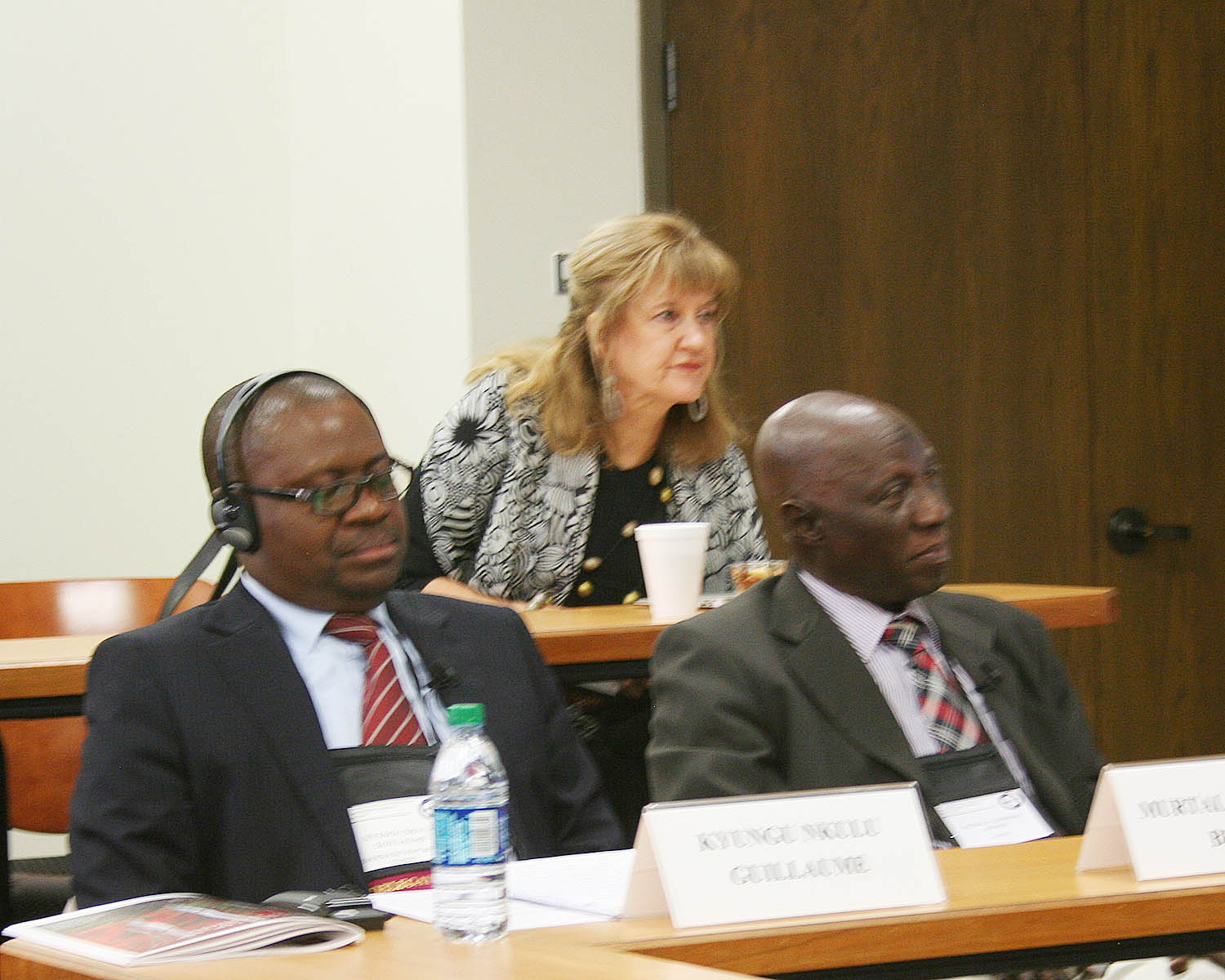Symposium 2015: Nigeria and Democratic Republic of the Congo

Reported by Blythe Shupe
This session was moderated by Leslie Hadfield, Assistant Professor in the Department of History of Brigham Young University. Panelists were Murtala Aderemi Bidmos of Nigeria and Kyungu Nkulu Guillaume of the Democratic Republic of the Congo.
Murtala Aderemi Bidmos, a professor at the University of Lagos in Nigeria, spoke of his teaching efforts to promote interfaith relationships amongst his students. He works to remove misinformation between Muslims and Christians and to encourage his students to find projects that they can build together.
Professor Bidmos argued that the lack of development in Nigeria is due to corruption. Corruption is a function of the heart and by cleansing the heart, you can being the process of nation building. By finding common ground in religious beliefs, his students move away from trading accusations, and once united over shared values, design strategic plans to help build the nation, rather than tear it apart. “If the heart is clean, corruption cannot coexist,” concluded Professor Bidmos.
Kyungu Nkulu Guillaume, Advisor to the Attorney General in the Democratic Republic of Congo, described the state of law and religion in the Democratic Republic of Congo. He began by pointing out that Articles 16 and 22 of the constitution guarantee certain rights, including the freedom to manifest religious beliefs as long as the law and other people’s rights are respected. Next, he discussed the laws surrounding religion. Churches are considered associations and must register a charter. That charter cannot violate the constitution, preach hatred or advocate any other doctrine that goes against law. He sees a synergy between religion and social stability. “Religion is a source of law and moral laws fit within judicial law,” commented Mr. Guillaume. Religion and law work together to teach morality and when people behave morally, there is stability.